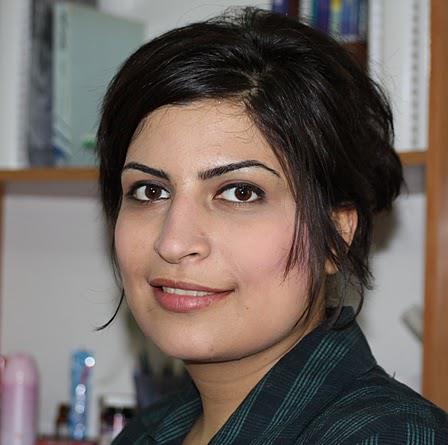ECE Assistant Professor Najme Ebrahimi has received a 2021 DARPA Young Faculty Award in support of her project, “Miniaturized and Power-Efficient MMW Arrays with Precise Electrical and Thermal Optimization for Future Low-Cost Standardization.” This project will focus on enabling miniaturized and power-efficient MMW arrays with precise electrical and thermal optimization for future low-cost standardization.
The expected application of this work is to the next generation of high data rate communications and sensing (6G and beyond) required for future wireless industry as well as in the military hardware space. The power consumption enhancement of the proposed methods promise to pave the way for systems which can be deployed on portable base stations—an army of drones—making high data-rate communications and high-resolution imaging anytime anywhere a reality.
The project continues the work by Dr. Ebrahimi’s group in the area of high data-rate and wideband communications and sensing for future mm-wave (MMW) wireless networks—6G and beyond. Future heterogeneous MMW wireless systems will require different technologies such as III-V materials and CMOS in a compact and low-loss package containing various modules, including antenna arrays. To this end, MMW lossy parasitics and delay between modules need to be significantly reduced to minimize area, loss, and thermal heating of inter-chip wiring and power delivery networks.
Dr. Ebrahimi’s research group is focusing on achieving high efficiency of EIRP/PDC by reducing the DC power consumption by at least 50 percent, as compared to the state of the art (above 100 GHz) by miniaturizing the layout, reducing the routings length, and with novel circuitry for efficient power generation, from the transistor level up to the package level. The proposed techniques in this project are based on fixed antenna package buildup for all elements, miniaturized aperture-coupled feed for power delivery network, and co-electrical and thermal optimization methods with novel efficient amplifier circuity on the transistor and chip level.

